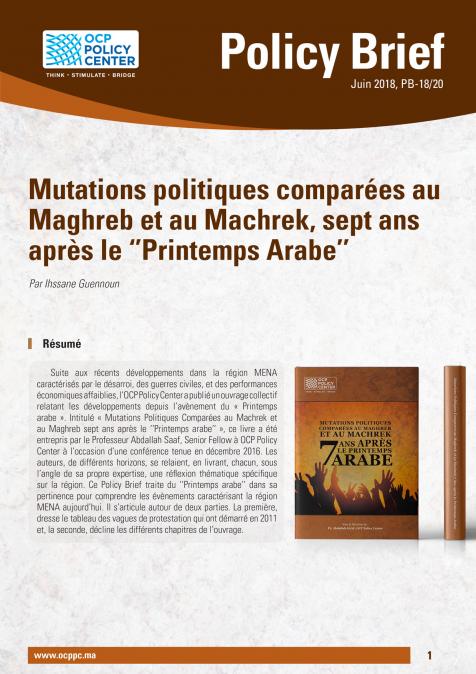Publications /
Opinion
For years, no one knew why dozens of battered wooden ghost boats, often with the corpses of North Korean fishermen, whose starved bodies were reduced to skeletons, routinely washed up on the Japanese coast, wrote Ian Urbina in an August 2020 report for Yale University’s 360 environment project. The explanation, he said, could be that “China is sending a previously invisible armada of industrial boats to illegally fish in North Korean waters, forcing out smaller North Korea boats and leading to a decline in once abundant squid stock ”.North Korean fishermen washing up in Japan—225 in 2018, 158 in 2019—might have “ventured too far from shore in a vain search for squid and perished”. In violation of United Nations sanctions, hundreds of Chinese vessels, tracked by satellites, fished in North Korean waters in 2019 (Foreign Policy, Nov. 20, 2020).
On August 5, 2017, United Nations Security Council Resolution 2371 was unanimously adopted, in response to North Korea’s July 2017 missile tests. The new restrictions banned purchases of North Korean coal, iron, lead, and seafood, estimated as roughly one billion dollars in revenue each year, including 300 million dollars worth of seafood. China, North Korea’s most important trading partner, promised to apply the new restrictions “fully and strictly”. “Just a few weeks after the ban took effect, hundreds of squid-fishing vessels left Chinese waters and rounded the southern tip of South Korea. Some 900 vessels entered North Korea’s 200 nautical-mile exclusive economic zone (EEZ). The Chinese were able to clear out the squid undisturbed. North Korean navy boats chased away local fishing vessels from their own traditional fishing grounds, according to Peter Oh, a defector from North Korea, who monitors the country’s food situation and reports for Radio Free Asia”.[1] “The Chinese were not unwelcome interlopers”, confirmed Mr Oh to Foreign Policy:“in fact they were fishing at the invitation of the North Korean government”, cashing in for more than 3000 vessel licenses, allowing Pyongyang to earn an estimated $220 million dollars. In March 2020, a UN Security Council report found that Pyongyang“continued to earn income from the illicit sale of fishing rights”, an estimated $180 million dollars in 2018. Ian Urbina :“The new revelations cast new light on the dire lack of governance of the world’s oceans and raise thorny questions about the consequences of China’s ever- expanding role at sea, and how it is connectedto the nation’s geopolitical aspirations”.
Invisible Ships
.The Chinese government insists its deep-water fishing fleet numbers roughly 2600, but other research, such as a stud by the British Overseas Development Institute, puts this number close to 17,000, many of these ships being ‘invisible’, like those that satellite data discovered in North Korean waters. China’s fishing’ fleet is “more than just a commercial concern, it acts as a projection of geopolitical power on the world’s oceans”, according to Slate. “As the US Navy has pulled back from the waters of West Africa and the Middle East, China has bolstered its fishing and naval presence. And in places such as the South China Sea and the Arctic’s Northern Sea Route, China has laid claim to prized shipping lanes, as well as subsea oil and gas deposits”.
In his Yale 360 environment report, Ian Urbina wrote that “nowhere is China’s fishing fleet more omnipresent than in the South China Sea which is among the most hotly contested regions in the world, with competing historical, territorial and even moral claims from China, Vietnam, Philippines, Malaysia, Brunei, Taiwan, and Indonesia. Aside from fishing rights, the interests in these waters stem from a tangled morass of national pride, lucrative subsea oil and gas deposits, and a political desire for control over a region through which a third of the world’s maritime trade flows”. China is not only the world’s biggest seafood exporter, writes Christopher Pala in Foreign Policy,” the country’s 1.4 billion people also account for 38%of all fish consumption worldwide. China’s “own coastline, once among the richest in the world, has been more overfished by its 300,000-strong domestic coastal fleet than any other nation,noted Pala in his extensive Foreign Policy Study “with less than 15% of the original fish biomass remaining ...The Chinese fishing fleet only ventured further afield in 1985, when 13 trawlers were sent to plough northwest Africa’s fish rich coastal waters. Today …China’s blue waterfishing fleet is by far the world’s largest, and includes12,490 unique vessels that were observed to have been fishing outside China’s internationally recognized EEZ in 2017 and 2018”.
“Foreign Policy” noted on November 30, 2020:“The waters off Argentina are a rare area where seafood is still abundant. Some 250 Chinese vessels fish for squid just outside Argentine’s 200 mile EEZ ... China’s South Atlantic fishing fleet is based n Montevideo, the capital and main port of Uruguay, Argentine’s northern neighbor”. Beijing’s plan to build its own port near Montevideo collapsed in the face of strong local opposition, but China was more successful in Mozambique. In 2017 they effectively took over the port of Beira, doubling its capacity so it could accommodate over 100 trawlers, according to Pierre Failler, a fisheries economist, who heads the Centre for Blue Governance at the University of Portsmouth. “The Mozambican channel, between Madagascar and Mozambique, had been relatively unfished, allowing the Chinese fleet to catch over 60,000 tons a year of large, high quality bottom fish like seabream and groupers”.
“Many of theChinese ships combing Latin American waters target forage fish, which are ground into fishmeal, a protein-rich pelletized supplement fed to aquaculture fish. The Chinese fleet has also focused on shrimp, and now endangered totoaba fish, which are much prized in Asia for the alleged medicinal properties of their bladders”,which each can sell for thousands of dollars. China’s fleet “accounts for 50 to 70% percent of the squid caught in international waters”, noted Ian Urbina in his Yale environmental study “effectively controlling the global supply of the popular seafood”.
As long as fleets are given financial assistance to overfish, experts say that sustainable fishing is impossible. Already 90% percent of commercial fish stocks tracked worldwide by the UN’s Food and Agriculture Organization, have been overfished or fully fished—meaning they are past their capacity to sustainably replenish themselves—including the world’s10 most important commercial species”.Ian Urbina concluded in his i Yale 360 environmental report: “From the waters of North Korea to Mexico to Indonesia, incursions by Chinese fishing ships are becoming more frequent, brazen and aggressive. It hardly takes a great feat of imagination to picture how a seemingly civilian clash could rapidly escalate into a bigger military conflict. Such confrontations also raise humanitarian concerns about fishermen becoming collateral damage, and environmental questions about the government policies accelerating ocean depletion.”
The opinions expressed in this article belong to the author.
[1]China’s Monster Fishing Fleet, By Christopher Pala, Foreign Policy





